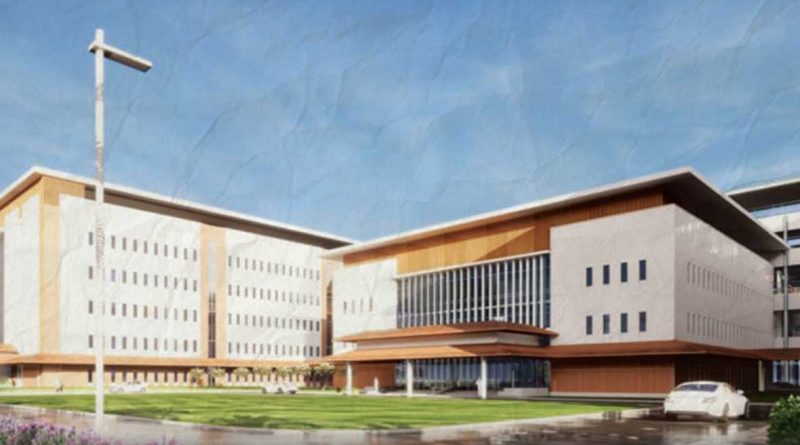COMPREHENSIVE TRANSPLANT CENTRE

The construction of the Organ and Tissue Transplant Institute in Kozhikode is set to be completed on time, adhering to procedural guidelines. The state cabinet recently approved the establishment of this Transplant Institute with an expenditure of ₹558.68 crores through the Kerala Infrastructure Investment Fund Board (KIIFB). This institute aims to bring all activities related to organ donation under one roof, enabling comprehensive care ranging from treatment and transplantation surgeries to rehabilitation. The institute will be located on a 20-acre campus in Chevayur, Kozhikode, and will consist of four blocks, each with six floors. It will feature a modern hospital facility with 510 beds, including 219 general beds, 42 special ward beds, 58 ICU beds, and 83 HDU beds. Additionally, the facility will have 16 operation rooms, a dialysis centre, and a transplant research centre. The first phase will include 330 beds and 10 operation theatres, while the second phase will add 180 beds and 6 operation theatres. There will be 14 specialty departments in the first phase and 7 more in the second phase. The institute will also place significant emphasis on education, aiming to start 31 academic courses.
Functions of the Institute of Organ Transplantation
1. Treatment: The number of patients with organ failure is steadily increasing, with only a small proportion finally receiving the needed organs. This gap is widening each year, necessitating significant efforts to address it. Establishing centres capable of managing large volumes of patients is crucial to reducing this disparity.
2. Teaching and Training: Creating skilled manpower is essential for the expansion of transplant facilities, ensuring they are widely available to the public. This center will set standards for education and training in organ and tissue transplants, serving as a model for other states.
3. Research: Advanced areas in transplantation, such as regenerative medicine, tissue engineering, and stem cell research, have led to major breakthroughs in clinical transplants. A well-designed environment for translational research at this institute will yield affordable new drugs and innovative devices.
4. Deceased Organ Donation and National Network for Organ Sharing: Organized centres and systems through these institutions will help coordinate and expand organ sharing networks. This centre can act as the state coordinating hub.
Currently, organ transplant surgeries are conducted in government medical colleges in Thiruvananthapuram, Kottayam, and Kozhikode, as well as the Ernakulam General Hospital. To expand organ transplant surgeries and improve infrastructure in government hospitals, ₹2.20 crores were recently allocated. The government also formed K-SOTTO (Kerala State Organ and Tissue Transplant Organization) to coordinate organ donation activities. In addition to these initiatives, the Transplant Institute will serve as a model institution in this field, staffed with expert doctors, scientists, and health workers with specialized training


